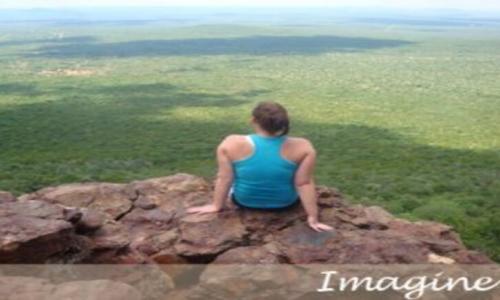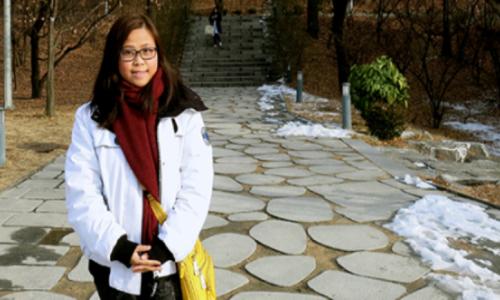
Committing to the Co-op Program
As an international student, my tuition is three times higher than domestic students’. This is one of the main reasons why I wanted to obtain a high GPA. I was attending classes regularly, writing papers, handing them in on time, and always reading textbooks before the lecture. I was trying to find some ways to lessen the financial burden for my parents, and I started to apply for part-time positions at grocery stores, coffee shops, and retail shops. Yet, I was not invited for a job interview. At that point, I realized that I should join co-op to gain proper training to search for jobs.
I think the most important part in the co-op process is to make a strong commitment before enrolling in the program. Landing a co-op job is not an easy task because it involves failure. Not all applicants will make it through the last step of the recruitment process. I was discouraged after a few times when I did not get shortlisted during the co-op job-seeking process.
Having a strong mindset before starting to search for jobs is one of the crucial factors to successfully land a co-op job. It is true that international students may have a harder time because of language issues. However, going one step further into the future is frightening for every university student. Writing papers, studying for exams and reading textbooks are a big chunk of university life, but co-op has its own merits because it will open the door for new experiences and prepare us for the future.
Preparing for Co-op
Even before I started applying for various co-op positions, I knew that I would need to have more volunteer experiences to build a solid resume and cover letter. So, to prepare for co-op, I volunteered at different organizations to gain as much experiences as possible.
I was constantly checking SFU Bulletin Boards and Volunteer Services postings for volunteer or internship opportunities. I started as a Client Call Volunteer at the Access Pro Bono Society of BC. I was taking calls and communicating with clients about various legal issues. Thankfully, my Criminology background helped in volunteering for this organization. After few months, I looked for another position in the organization and volunteered as an Administrative Assistant. In that way, I was exposed to various tasks and acquired more in-depth skills. I also volunteered on campus as a News Reporter at SFU’s student newspaper, The Peak. I had the opportunity to meet different stakeholders and write about current issues in university or society. Volunteering as a News Reporter was not as related to my background as a Criminology student, but I acquired valuable transferrable skills.
Lastly, I had the opportunity to participate in SFU’s Work-Study Program, which allowed me to work and study concurrently. It is rather self-paced, so I could learn how to balance time between various tasks. I was able to make some money to pay my tuition fee as well. Being positioned as a Research Assistant at the Criminology lab, I learned invaluable research skills and made connections with professors.
The Application Process
Just like every other co-op student suggests, it is important to apply for a wide range and numerous jobs to improve your chances of obtaining a co-op position. What I came to realize during my work search is that it is extremely important to emphasize transferrable skills, such as communication, teamwork, research, technical and interpersonal. It is always very important to highlight these transferrable skills and be ready to tell interviewers where and how I acquired those skills. As we learn from BOL courses and numerous co-op workshops, tailoring resumes by carefully going through job descriptions is a way to make an effective and appealing resume and cover letter.
I personally benefitted from reading previous work reports at the Arts Co-op office and having practice interviews with the Co-op Coordinators. I prepared for interviews by coming up with my own interview questions and trying to answer them on my own. I agree that job interviews are nerve-wracking for all, but I can definitively say that the only way to successfully improve is by endless practice. Practice could be done through Interview Question Database on the OLC, with Co-op Coordinators and even Interview Stream. I personally got two interview offers after applying for more than 10 positions, so don’t worry if you don't get shortlisted every time you make an application!
Surviving and Thriving in the Work Term
At the end, I was finally offered a Research Assistant position at the BPI. Inc. Working full-time in an office environment was different from studying. Commuting to Downtown Vancouver everyday, adjusting to the work environment from 9-5, learning different tasks, and getting to know all co-workers were all new experiences for me.
By working here, I came to realize that expressing my opinions in an appropriate way is important. In one of the meetings, the issue was brought up to address how we could make the training process more effective for new hires. As one of the most recent hires, I had some thoughts on improvements, so I spoke up to suggest the method of ‘shadowing’. By shadowing, new hires can learn how the work is being done by the senior workers and observe step-by-step procedures. Team leaders agreed on the idea and we started to implement the new method into the training process, which turned out effectively.
Another lesson that I learned is to consider solutions or establish my own answers to questions before bringing them to my supervisor. Sometimes, supervisors might not have the clear-cut answers to certain questions. I realized that it makes discussions more effective when I express my opinion to supervisors. Researching about the particular topic in question and coming up with possible solutions was one of the ways to contribute to smoother work flow in the company.
I have absolutely no regrets in participating in co-op program. I believe that I gained invaluable experiences that I could have never learned from studying at school. Co-op delayed my graduation date, but it helped me substantially in planning for my future. Participating in Co-op helped me define my future career interests. I was fortunate enough to work in the office environment and build professional relationships with my colleagues at BPI. However, I found myself wanting to go back to school and explore more about my research interests in Criminology. If it was not for Co-op experience, I would not have known that I wanted to pursue future education after graduating. You never know what you want to do unless you try different things.
Beyond the Blog
-
Interested in resources for International Students? Visit EAL on the OLC.
-
Interested in co-op? Visit the SFU Co-op page!














